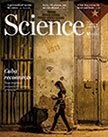Gay Canvassers Study May Rely on Bogus Data, but Social Contact Matters for Same-Sex Marriage Debate

I'm sure that Michael LaCour hoped to make the front page of The New York Times many times over during his career as a Princeton political scientist -- preferably being featured in articles that talked about groundbreaking research (and real results), not his fabrication of a study with Columbia University political scientist Donald Green on the impact of political canvassing on public opinion toward same-sex marriage. The story of the "great gay marriage hoax" is a compelling one for academic researchers, policy activists, and the general public alike. The revelation by Green that the data may have been fabricated , has many reputable news organizations issuing retractions and apologies including Ira Glass over at This American Life . And plenty of academics were jamming up Retraction Watch, making it hard to access Ivan Oransky's breaking post as well as Brockman, Kalla, and Arronow's Irregularities in LaCour (2014) that noted the study's problemat...

